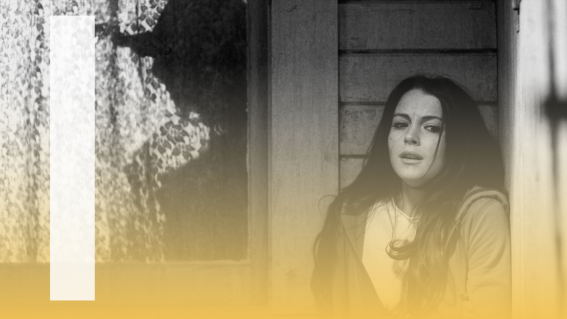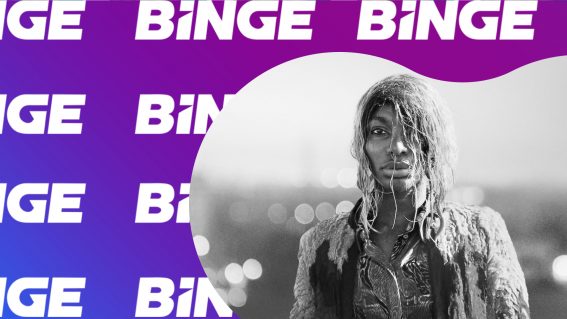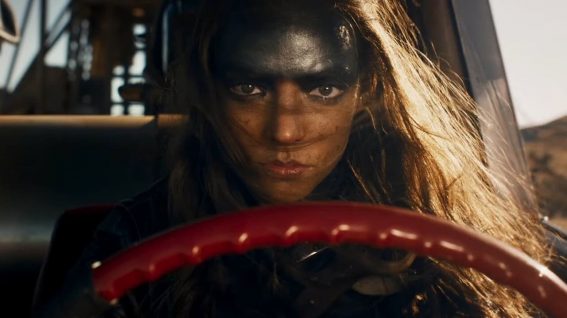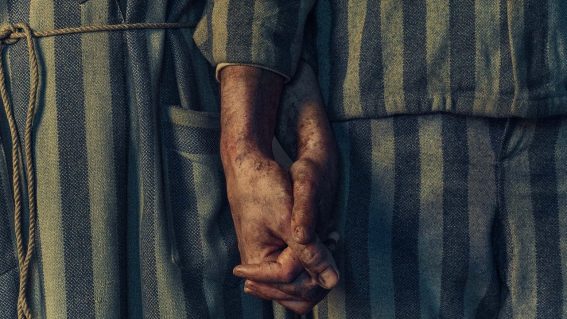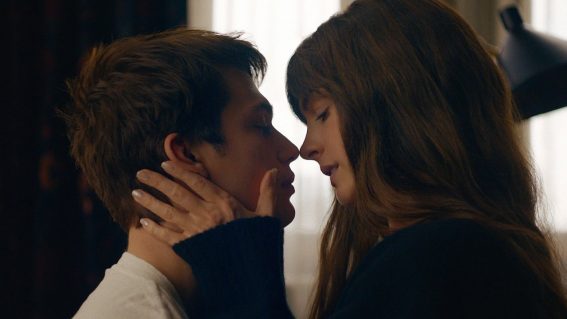The top 15 films of 2019

Critic Luke Buckmaster revisits an exciting year for cinema and streaming, revealing the best 15 films of 2019.
It was the best of times, it was the worst of times. While Avengers: Endgame and Star Wars: Rise of the Skywalker smashed the multiplex to smithereens, pulverising audiences with empty spectacle and the fraudulent promise of a conclusion (“the saga will end,” trumpeted the Skywalker trailer – yeah right), international cinema rose up to deliver the goods.
This year offered everything from a brilliant French period drama to an Icelandic film about a choir conductor living a double life as an eco-activist. And in news that will surprise nobody, streaming platforms also offered primo content – continuing the fight between the old and the new, the big screen and the small screen, the ticket and the subscription, and introducing a new battle: Scorsese and Coppola versus the MCU.
Of the eight American films on this list, four are Netflix originals. Of those four, three are documentaries (in one case a quasi-documentary) that incorporate music in electrifying ways.
So, here are my top 15 films of 2019. To be eligible for this list a film must have been received either a theatrical or straight-to-streaming release in Australia during the calendar year. I have grouped these titles into five themed categories, spanning everything from parasitic families to artists who find themselves captured in portraits.
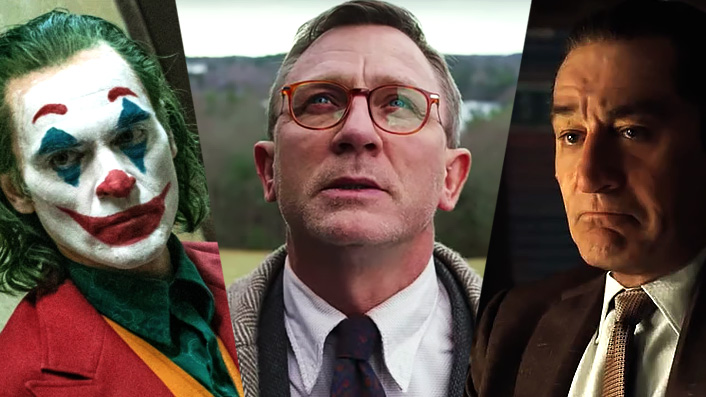
Criminals playing funny buggers: Knives Out, Joker, The Irishman
Returning from the Star Wars galaxy to remind us – and himself – of the sort of art he’s capable of when not subservient to the focus group-driven suits at Disney, Rian Johnson’s whodunit Knives Out (full review here) is the most purely enjoyable star-driven Hollywood movie of 2019. Daniel Craig plays a detective called in to investigate the case of a wealthy elderly novelist (Christopher Plummer) who carks it in suspicious circumstances. Johnson’s fiendishly clever script is, as they say, all killer no filler, with a non-linear plot that encourages viewers to lose themselves in it – like a house of mirrors.
Some people will see Joker included here and want to firebomb my home in retaliation; others will perform fist pumps. It’s that sort of film: no middle ground. An incendiary arthouse drama torn from the spine of a multiplex franchise, Joker (full review here) imagines the downtrodden formative years of the titular villain (Joaquin Phoenix) and it…ain’t pretty. If the film weren’t so grippingly crafted, with challenging ideas about a society broken from the top down (or the bottom up), you could deride director Todd Phllips for pointless provocation. But this twisted origins story commands a certain kind of respect and attacks the superhero/supervillain genre from a fresh perspective – for better or worse.
I suspect Martin Scorsese’s epic three-and-a-half hour mob drama The Irishman (full review here) won’t age well, at least in terms of visual effects. The de-aging technology that winds back the clock for Robert DeNiro, Joe Pesci and Al Pacino already looks weird. But by god it’s great to have Marty back doing his gangster thang, with everything that entails – from lengthy tracking shots to vintage doo-wop and a violent, sprawling rise-and-fall narrative. No-one makes gangster movies like the old maestro and this film, distracting visuals notwithstanding, is an instant classic.
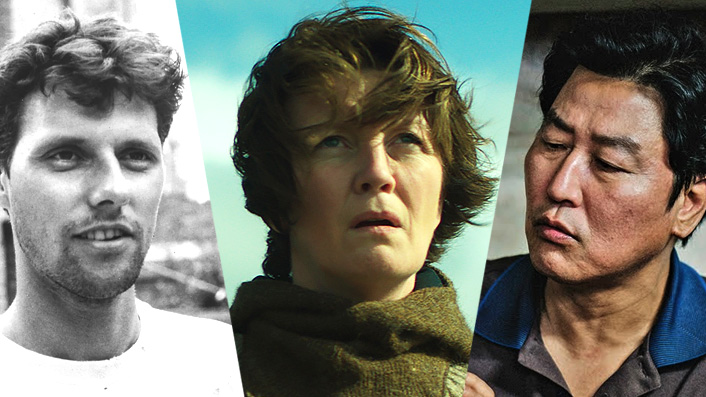
Siblings and families: Woman at War, Tell Me Who I Am, Parasite
Director Benedikt Erlingsson’s wonderful Icleandic film Woman at War is a fitting action-adventure for the era of Stop Adani and the Galilee Blockade. Choir conductor Halla (Halldóra Geirharðsdóttir) lives a double life disrupting the operations of a Rio Tinto aluminium plant, engaging in activities – i.e. industrial sabotage – most politicians would describe as “eco-terrorism” and most activists would call “direct action.” Important to this story is Halla’s relationship with her identical twin sister (also played by Geirharðsdóttir). The presence of musicians who don’t belong to the film’s internal reality lighten a potentially heavy load with fun, Conchordian vibes.
At the core of the soul-searching documentary Tell Me Who I Am is the relationship between American twins Alex and Marcus. Among the questions it asks is: if a person’s every memory is taken away, what remains of them? After losing all his memories in a motorbike accident when he was 18, Alex relies on Marcus to paint the details of his past – a fraught dependance that results in a fascinating portrait of brotherhood. Harrowing but humane.
And the family in director Bong Joon-ho’s tangy drama/thriller/jet-black comedy Parasite? Oh, man, the family in Parasite. There are two of them, actually: the streetsmart Kim family, first and foremost, who trick the wealthy Park’s into giving them employment. Joon-ho shirks the expected route into class commentary: the rich people here are decent folk and the poor scheming ones are dirtbags. The director’s genre ping-ponging approach delights in yanking the rug from beneath the audience’s feet.
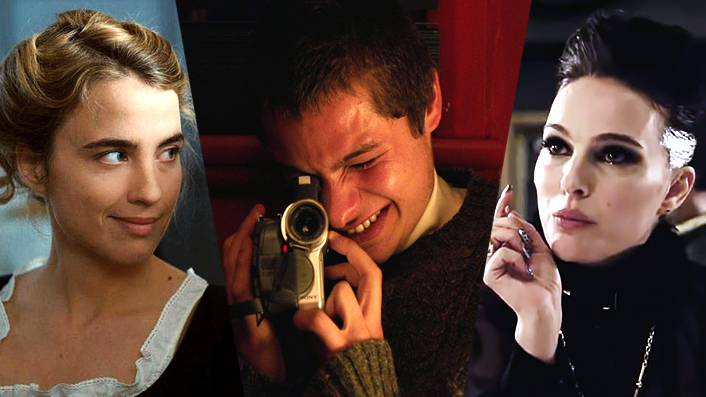
Portraits of artists: Portrait of a Lady on Fire, Acute Misfortune, Vox Lux
Writer/director Céline Sciamma’s ravishing French period drama Portrait of a Lady on Fire ponders the relationship between memory and art: an ambitious question, explored with great respect for the audience’s ability to form their own connections. Marianne (Noémie Merlant) rummages through her memory to paint Marianne (Noémie Merlant) in a film that works brilliantly on many levels, including an exploration of the power dynamic between an artist and their subject, and a steamy romance between two women.
Acute Misfortune (full review here) is writer/director Thomas M. Wright’s hauntingly poetic adaptation of Erik Jensen’s biography of the acclaimed artist Adam Cullen. Wright uses his subject’s heroin-filled and booze-soaked final years to pose another great question: does Australia celebrate the wrong kind of people? The film was shot in 4:3 ratio, which concentrates the drama and emphasises human faces – the most striking belonging to a meditatively gloomy Daniel Henshall, who is unforgettable in the lead role.
Natalie Portman is a more emotionally camouflaged face in Vox Lux (full review here), playing a superstar performer who – like all superstars – hides in plain sight. She is Celeste, who begins the narrative as a survivor of a high school shooting and grows into a flaky but complex prima donna, poked and prodded by writer/director Brady Corbet for what she can tell us about the vacuity of celebrity culture. Vox Lux is an under-appreciated triumph, critical of the hoi polloi for looking up to the stars and of the entertainment industry for fouling the skyline.
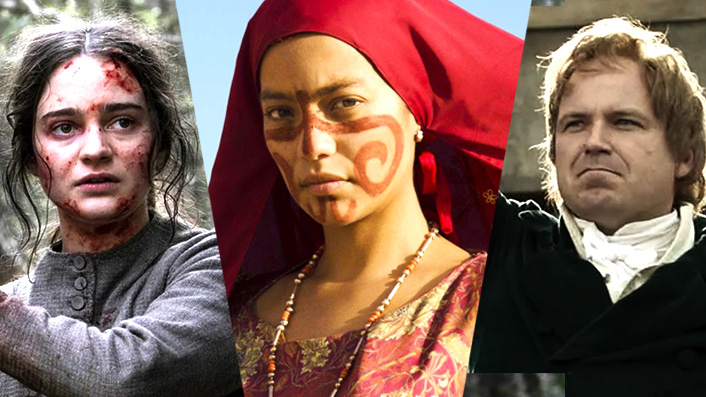
History with a twist: The Nightingale, Peterloo, Birds of Passage
To describe the impact of Jennifer Kent’s The Nightingale one naturally gravitates towards turns of phrase such as “gut-churning” and “soul-bruising.” Anything to make the point that this unforgettable period drama – set in 19th century Tasmania, following an Irish convict (Aisling Franciosi) on a cross-country revenge mission – packs one almighty punch. The film’s brutal violence is countered by the utter elegance of Kent and co’s construction, featuring the painterly cinematography of Radek Ladczuk and a haunting score from Jed Kuzrel.
In Peterloo (full review here), British filmmaker Mike Leigh recreates events leading up to a real-life massacre in England’s in 1819 during which 18 peaceful protests were killed and hundreds injured. The story involves two kinds of communities: the agitators and commoners, who meet and mobilise to demand democratic reform, and the well-healed powers that be, who would like them to shut up and go away. This boldly structured, protagonist-less film, about the power of ideas, presents a nuanced perspective on both sides, neither glorifying the activists nor demonising authorities.
Like Once Upon a Time in Hollywood (which narrowly missed making this list) director Ciro Guerra’s Columbian drama Birds of Passage views major cultural movements from somewhere to the side, making historical connections from a distance. The Wayúu tribe, situated in the Guajira Desert in northern Colombia, meet the demands of American hippies looking for weed, which might have given the yanks a pleasant high but led to a drug war that flared in Columbia from the late 60s to the early 80s. You’ve seen hard narcotic-trading men living and dying by the sword before – but never quite like this: a cartel drama as a kind of ethnographic study, combining realism with cinematic flair.

Electrifying musical documentaries: Apollo 11, Rolling Thunder Revue: A Bob Dylan Story by Martin Scorsese, Homecoming: A Film by Beyoncé
Boy does director Todd Douglas Miller embrace the ‘show don’t tell’ dictum in his narrator-less documentary chronicling the Apollo 11 voyage. This inspiring film brilliantly uses a score comprised entirely of instruments and effects that existed at the time of the titular space mission. It is big in every way: big images, big sounds, big ideas, big achievements. A rhythmic work configured with an editing style not often seen in documentaries, full of dislocated images and grand canvases.
There’s also plenty of music in Rolling Thunder Revue (full review here) and Homecoming (full review here), two spectacles inseparable from the attitudes of their superstar singer-songwriters: Bob Dylan in the former and Beyoncé in the latter. Dylan’s prankishness gets lovingly embraced by Martin Scorsese, whose quasi-doco spins an elaborate apologia pro vita sua, full of lies and half-truths, with something to say about the deceptions of cinema and the mixed motives of people who wear masks, literally or symbolically.
Beyoncé doesn’t want you to think she is hiding in Homecoming, that’s for sure. This concert extravaganza has enough lashings of light and noise to awaken a nation of somnambulant cave dwellers. Combining footage shot on two weekends of the star’s ‘Beychella’ event, there’s no doubting who is the god of this universe, Beyonce descending from on high to command her many starstruck disciples. If Rolling Thunder Revue is vaudevillian theatre, Homecoming is grand stadium spectacle, with huge song-and-dance numbers and commentary on black history in America.

